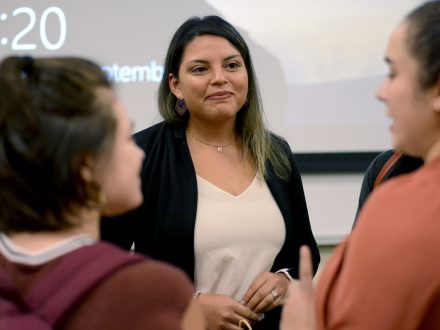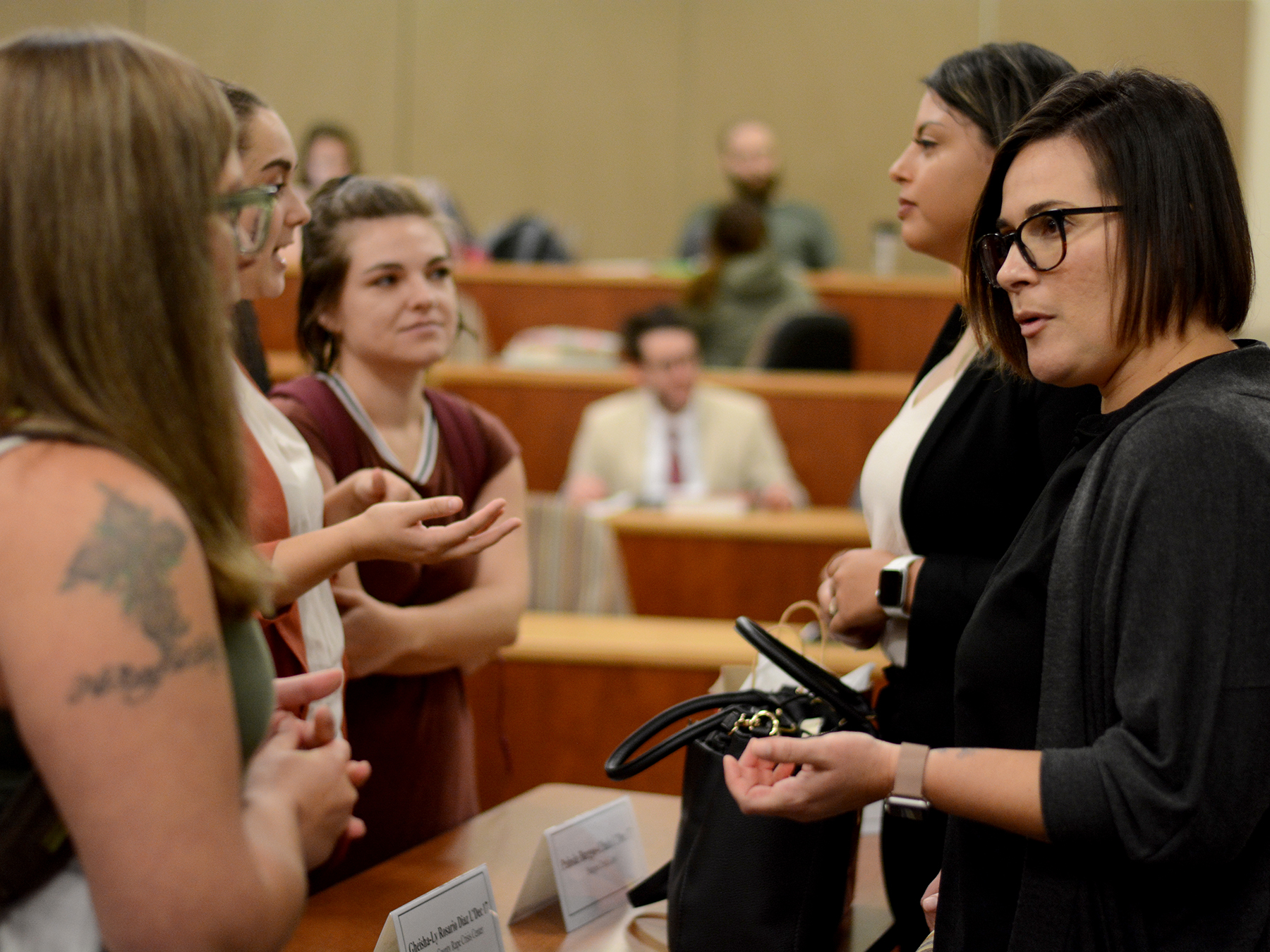Three Elon Law alumni shared perspectives and practical advice with current students as part of a Hispanic Heritage Month panel conversation hosted in September by the Hispanic and Latinx Law Students Association and the Women's Law Association.
Attorneys who represent Hispanic clients might want to keep a few things in mind. From a trio of Elon Law alumni who identify as Hispanic and who counsel native Spanish speakers:
- Don’t view clients as “tokens”
- Attempt to learn basic Spanish, but conduct interviews in English and use an interpreter
- Be patient with clients whose culture may not prioritize immediate action to solve a problem
- Always ask uncomfortable questions like citizenship status – it will help you understand the ramifications of your advice
And don’t hesitate to ask someone how to pronounce his or her name.
“You don’t want to tarnish a relationship before it begins,” said Sharon Dunmore L’May’17 of Gate City Legal Services. “If you’re not comfortable or don’t know how to pronounce someone’s name, ask them! No one is going to be offended by that. I speak Spanish and I don’t know how to pronounce some of the names I encounter!”

Dunmore was joined by Pahola Burgos Chala L’Dec.’17 of Burgos Chala Law, and Gheisha-Ly Rosario Diaz L’Dec.’17 of the Orange County Rape Crisis Center, in a Sept. 23 panel conversation hosted by Elon Law’s Hispanic & Latinx Law Students Association and the Women’s Law Association as a kickoff event to a series of programs celebrating Hispanic Heritage Month.
With dozens of Elon Law students in attendance, the three attorneys shared stories of navigating law school and overcoming “impostor syndrome” as first-generation law students, plus advice for attorneys of all backgrounds assisting the Hispanic community.
Many suggestions applied not only to Hispanic clients. “When you’re working with victims, bedside manner is something we are not taught in law school,” said Rosario Diaz. “I’ve seen attorneys talk to some of our clients, and they’re asking questions without regard to what that person has to go through or search for (in their answers).”
And remember that sometimes the best help attorneys can provide is simply being present for a client and his or her family.

“I understand the fear that (some families) live through every single day,” said Burgos Chala, whose parents immigrated to the United States and were scammed by a notary public who drained the family’s finances with the promise at helping with their legal status. “For me, to listen to them, and to bring them some kind of comfort, that’s what makes it rewarding.”
Organizers praised the panelists for the important work they do in the community and for giving back to their law school alma mater by taking part in programs like Monday’s discussion.
“I hope students left the women’s panel with a deeper understanding of what is means to be a Hispanic/Latinx attorney,” said Cynthia Hernandez L’20, president of HLLSA. “Our panelists gave students practical advice for how to interact with Hispanic/Latinx clients, and they created an inclusive environment where every person in the room walked away having learned something new. We are very grateful to have had this opportunity.”



